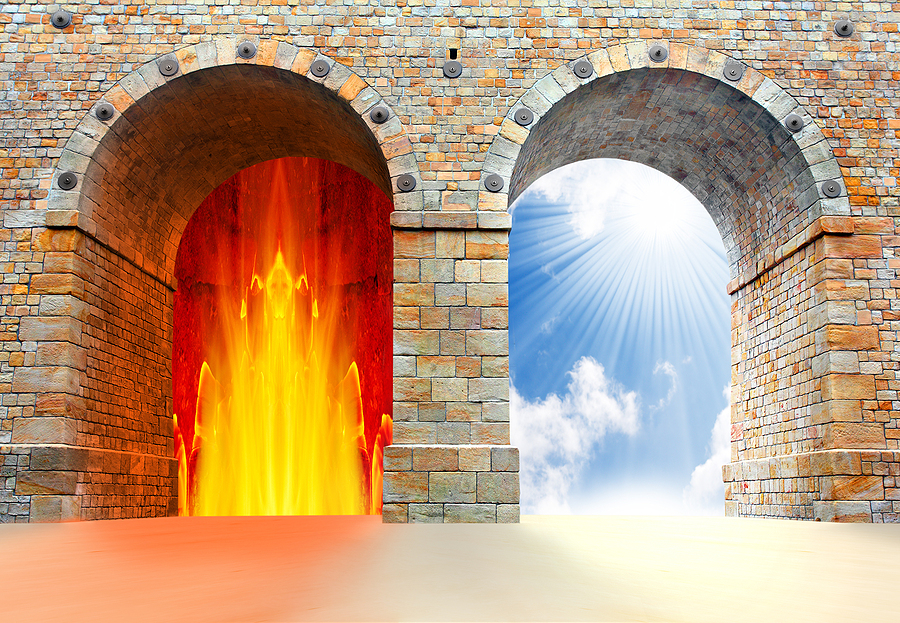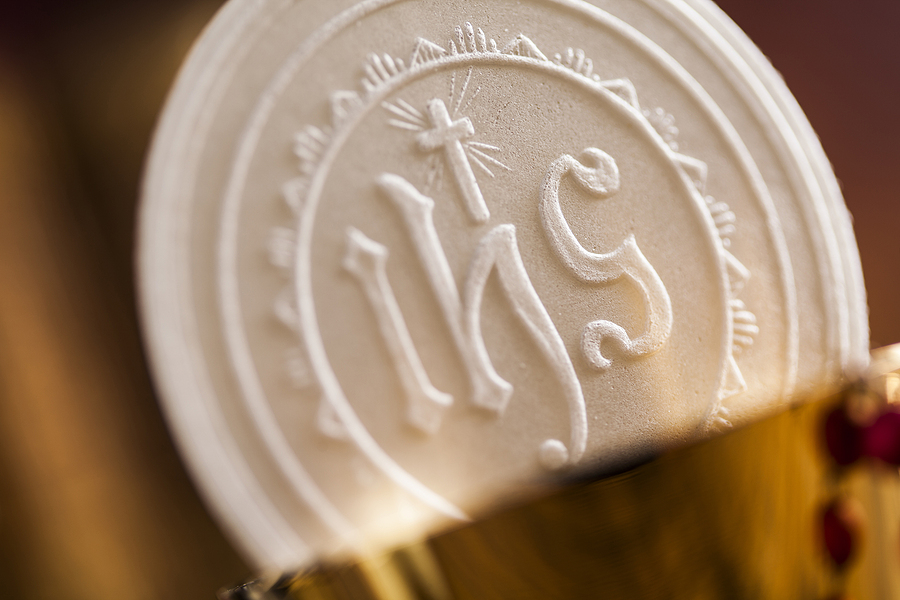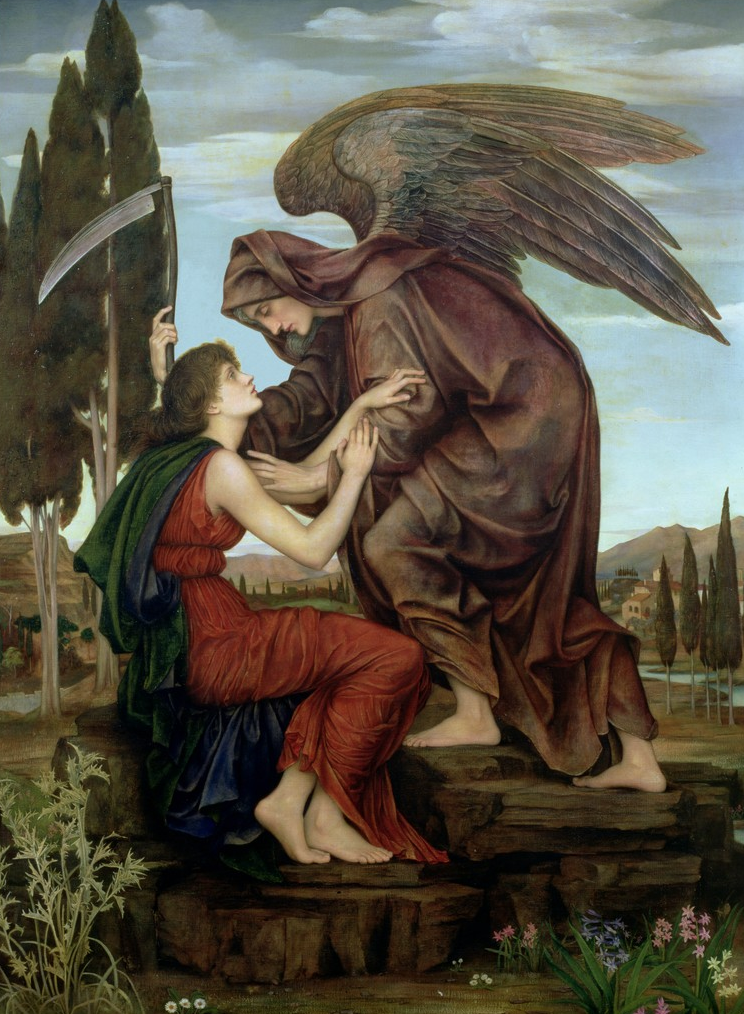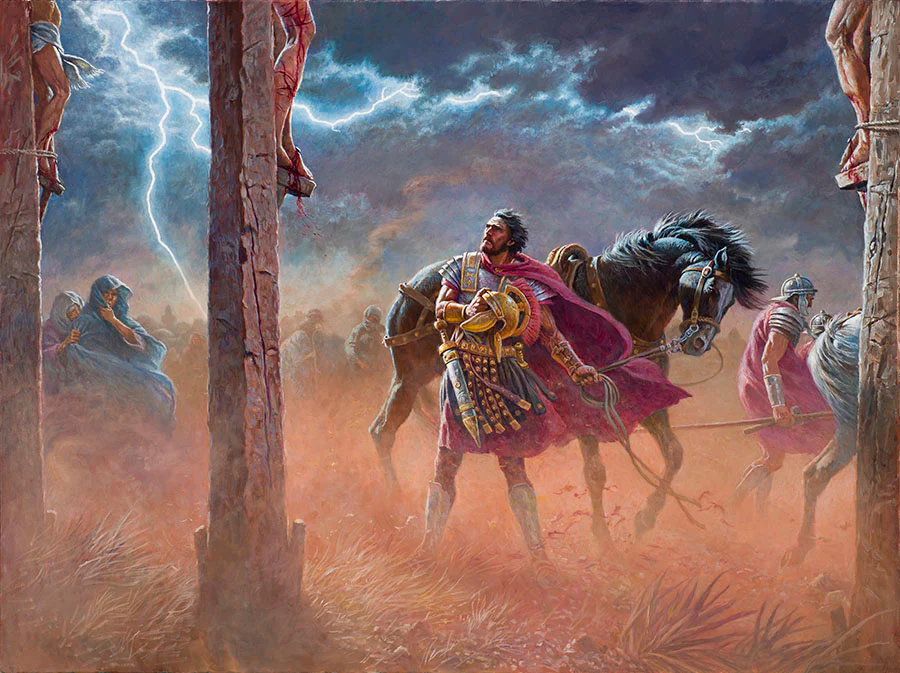
Thinking about heaven and hell
Today is Pentecost. This day marks the end of fifty days of joyous liturgical celebration of death’s destruction by Jesus when the Father raised Him from the dead. It follows seven days after the Great Sunday or Jesus’ ascension into heaven. And commerorates the descent of the Holy Spirit “in tongues of flame” upon the disciples.
The Spirit, Jesus explains, could not be released until He ascends into heaven and takes his seat at the right hand of the Father.
I will send the Paraclete who will teach you all things.
The Gospel readings for this week consist of Jesus preparing to leave these men.
“I pray not only for these,
but also for those who will believe in me through their word,
so that they may all be one,
as you, Father, are in me and I in you,
that they also may be in us,
that the world may believe that you sent me.
And I have given them the glory you gave me,
so that they may be one, as we are one,
I in them and you in me,
that they may be brought to perfection as one,
that the world may know that you sent me,
and that you loved them even as you loved me.
Father, they are your gift to me…”
He is saying good-bye.
- After fifty days of appearing to them,
- Always asking, “Do you have anything to eat?”
- I am not spirit, not a ghost.
- Commanding Thomas to “put his hands” into the holes in his hands, feet and side, “You see and touch Thomas..”
- The Christ has shown the apostles that He whom they saw crucifed has been resurrected.
- The historical evidence of these facts can be denied only by the blind and foolish.
This Pentecost conjures up thoughts of death:
My own. Followed swiftly by thinking about heaven and hell.
It’s inescapable, isn’t it?
Despite the fact that our current culture loudly trumpets secularism, we think-and talk- about death more than we like to admit. By the way, to make sure I understood the meaning of the word secular, I looked it up.
It is defined as, “a system of political or social philosophy that rejects all forms of worship or religious faith.”
A most fitting defintion of 21st century America, overflowing with the blind and foolish.
And yet, we do worry about death. In fact, a cursory look at much of the individual and global response to Covid 19 makes the statement, “terrified by the thought of our death” valid.
Why would that be?
Unless, we fear what happens afterward?
Where do we go after we die?
Well, there are just three choices, right?
So pick one.
- Nowhere- I cease existing.
- Heaven (more likely, Purgatory).
- Hell.
For an increasing number of people in the world, the first option has gained popularity. For decades now, the magnificent cathedrals in Europe and the United Kingdom have devolved to being mostly museums. Over ten years ago, I was astounded to see the long lines of tourists waiting to get inside to “Il Duomo” the Cathedral of Florence. Following the 7am mass, the Italian priest had insisted on showing his two American Catholic tourists around the incredibly beautiful Cathedral.
Including those areas prohibited to the tourists, like under the Dome.
This is a church! Go to mass!
It has taken us longer to catch up with Europe but we’re getting there.
Logically, a belief in heaven necessitates a corresponding belief in hell. But that is apparently not the case. A 2008 Pew Research study of 35,000 people found 74% of Americans believe there is a heaven, but less than 60% believe in hell. For increasing numbers of us believers, the notion of hell-even of purgatory- does not conform to their notion of a loving God. Despite our weekly recitation of the Apostle’s Creed.
Curious, isn’t it?
The long marriage between atheism and intellectuals seems sadly secure:
Theologians and philosophers talk about “the problem of evil,” and the hygienic phrase itself bespeaks a certain distance from extreme suffering, the view from a life inside the charmed circle. They mean the classic difficulty of how we justify the existence of suffering and iniquity with belief in a God who created us, who loves us, and who providentially manages the world. The term for this justification is “theodicy,” which nowadays seems a very old-fashioned exercise in turning around and around the stripped screw of theological scholastics. Holiday in Hellmouth
How does “and the New York Times fit in?”
Well, I’m a writer. So when I decided to write this piece called “Thinking About Heaven and Hell,” the first thing I did was an online search.
What have others’ said on the subject? The basic first step when writing about a topic- any subject at all.
The first piece that popped up was a NY Times article called, A Case for Hell.
Huh?
I clicked on A Case for Hell, read the first couple of paragraphs and liked it, a lot. But, since I stopped reading the NY Times years ago, I had to pay to read the entire article. Annoyed, I paid the $4.00 ( $1.00/week.) I will spare you the long list of reasons that I gave up my decades long tradition of reading the Sunday New York Times.
Hint: One of them was not provocative, discriminating, and well-reseached articles on Christianity.
My investment paid off. I found a writer I had never heard of: Russ Douthat, his A Case for Hell is the source for the information in the preceding paragraphs. Douthat is an intriging young man: an excellent writer, prolific and with a most interesting perspective:
But the more important factor in hell’s eclipse, perhaps, is a peculiar paradox of modernity. As our lives have grown longer and more comfortable, our sense of outrage at human suffering — its scope, and its apparent randomness — has grown sharper as well. The argument that a good deity couldn’t have made a world so rife with cruelty is a staple of atheist polemic, and every natural disaster inspires a round of soul-searching over how to reconcile God’s omnipotence with human anguish.
This guy is not just interesting but hopeful. A quick glance at his books,Privilege: Harvard and the Education of the Ruling Class and Bad Religion: How We Became a Nation of Heretics feel like conversations I have had. If only with myself.



